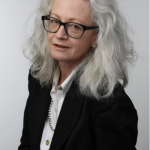
 The proposal that Being-in-the-world is always being with others is one that provides a sound basis for therapeutic group work in the existential model: (12 participants max.)
The proposal that Being-in-the-world is always being with others is one that provides a sound basis for therapeutic group work in the existential model: (12 participants max.)
“Psychology is neither ‘individual’ nor ‘group’, except by abstraction” S.H. Foulkes
The proposal that Being-in-the-world is always being-with-others is one that provides a sound basis for therapeutic group work in the existential model.
No-one can do nothing in a group: everyone is in some part, and in some way, responsible for the quality of relationship(s) that are created. What better stage on which to discover how you are experienced, how clear or ambiguous are your communications, and under what circumstances might you retain or modify your intentions and strategies of being-with-others?
Facilitator and group members are all in this together. Anyone can be a participant/observer, but in any case, everyone is being and doing.
Part 1 of this two-part CPD event will consider some queries about the nature of the format. Why group work? What are the therapeutic possibilities and what might be the risks for both facilitators and members? How is it the same and different from individual work?
In discussing these we will refer to some existential proposals that are particularly relevant for group work; inter-subjectivity, time, choice, uncertainty, the self, meaning/meaninglessness- to name a few. These topics will serve to illuminate the process of group work and what it offers in terms of an existential phenomenological endeavour.
Theory and practice will be presented as aspects of an attitude that informs an existential model. This premise will facilitate explorations of such issues as: What is the role of the facilitator? What is the responsibility of the members? What are the possibilities for therapeutic interactions and effects? What are the possible implications of facilitator styles? These proposals are likely to be complementary to any humanistic model of therapy and counselling.
Part 1 and 2 of this series are interconnected, but may be taken independently.
Subsequent to a brief summary and review of the basic points explored in part 1, part 2 of this CPD event will continue with an exploration of process and procedure. This will include the issue of themes, in contrast to ‘problems’, and ‘dialogue’, in contrast to structured interventions.
There will also be an opportunity to consider the temporal stages of the group: beginning, middle and end, all of which may be characterised by similar qualities and difficulties. ‘Endings’ as an issue that is present from the very beginning of the group will be discussed as a significant factor in all human relationships.
There will be a presentation of an existential phenomenological theory of emotions, what makes them important, and how to work with them. A review of common difficulties with procedure, such as boundary settings and with inter-personal engagements, such as conflict and drop-outs, will facilitate a deeper appreciation of these aspects.
These proposals are likely to be complementary to any humanistic model of therapy and counselling.
Those in attendance will be welcome to offer their own experiences and questions.
Come join us for a one day afternoon seminar that will provide both experiential and theoretical material for the facilitation of and participation in existential groupwork.
Second date 18 November 2017

